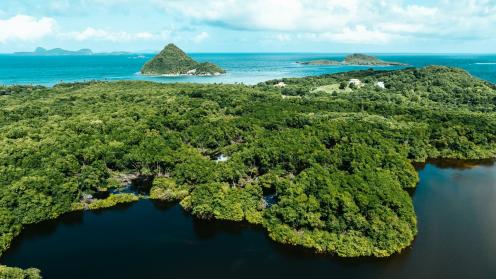Recently finished
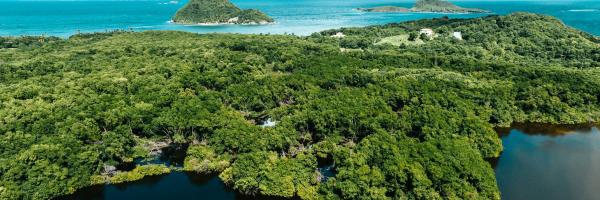
68th Meeting of the GEF Council
The 32-member Council will consider a new work program under the GEF’s eighth replenishment cycle (GEF-8) totaling over USD 550 million, which is expected to generate over USD 4 billion in co-financing for projects benefitting people and the planet.
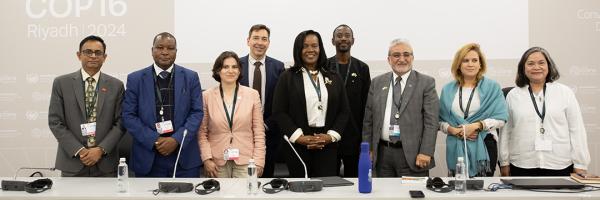
Private Sector Dialogue to Catalyze Nature-Positive Investment in Drought Resilience
Can efforts to build drought resilience attract private sector investment? Government leaders at this session cited examples of how private finance and government support have enabled tree planting, livestock insurance, and hydraulic ram pumps, benefiting farmers.

Future Leaders Network: AI Negotiation Tools and Technologies
How can AI tools empower youth delegates at multilateral negotiations? Organizers of this session presented a custom-built AI tool for youth negotiators, and provided tips on prompt engineering, data bias, and risks to avoid.
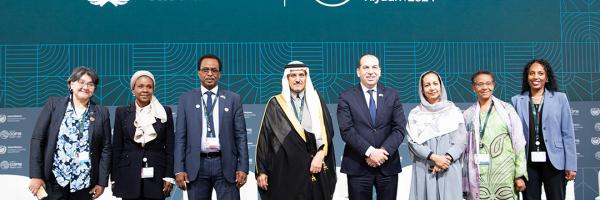
Resilience Day: Connecting Desertification, Land Degradation and Drought, Sand and Dust Storms, and Water Scarcity with Integrated Land Solutions
Resilience against drought means many things, rainwater harvesting, tree planting, the chance of owning one’s land—and restoring hope to people displaced by climate impacts.
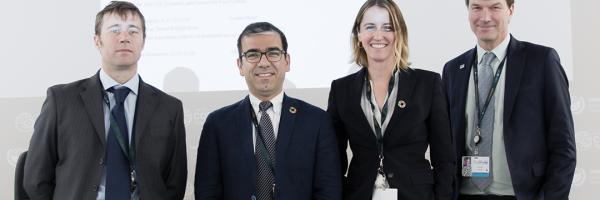
Soil Degradation in a Changing Climate
Degraded land, in the future, could go from being a carbon sink to being a carbon emitter.
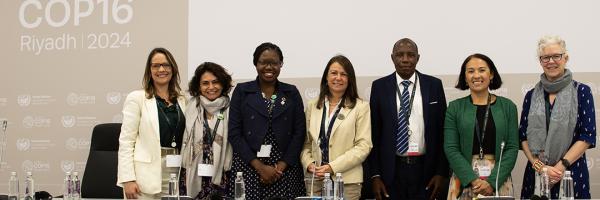
Building Community and Ecological Resilience Through the Freshwater Challenge
The Freshwater Challenge to accelerate restoration of rivers and wetlands by 2030 has attracted 50 countries, and raised high hopes that it can provide a strategic way to help countries meet national commitments across the three Rio Conventions.

European Commission Joint Research Centre: World Drought Atlas—A Perspective on Drought Risks and Resilience
The World Drought Atlas, launched during UNCCD COP 16, is a timely and important policymaker tool which illustrates the complex, systemic nature of drought, providing the latest science and policy solutions to underpin water resilience strategies that are proactive and inclusive.
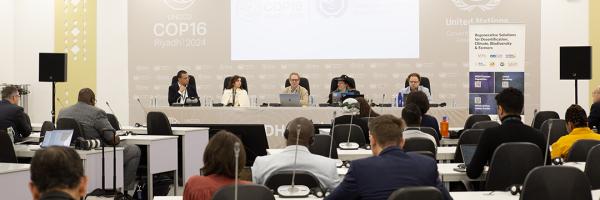
Regenerative Agriculture and Nature-based, Science-backed Innovation: Empowering Farmers as Stewards
Contrary to common perceptions, regenerative agriculture isn’t less profitable than chemical-based farming.
We are Earth Negotiations Bulletin
The Earth Negotiations Bulletin (ENB) is a balanced, timely and independent reporting service on United Nations environment and development negotiations. It is the flagship publication of the International Institute for Sustainable Development. IISD is a non-profit organization based in Winnipeg, Manitoba, Canada.
Many UN delegates, ministers and other governmental officials, NGOs, the business community, the academic community, the media and UN staff who track environment and sustainable development policy consider the Earth Negotiations Bulletin to be essential reading. The Bulletin has received high praise for its objective and comprehensive presentation of the facts.
